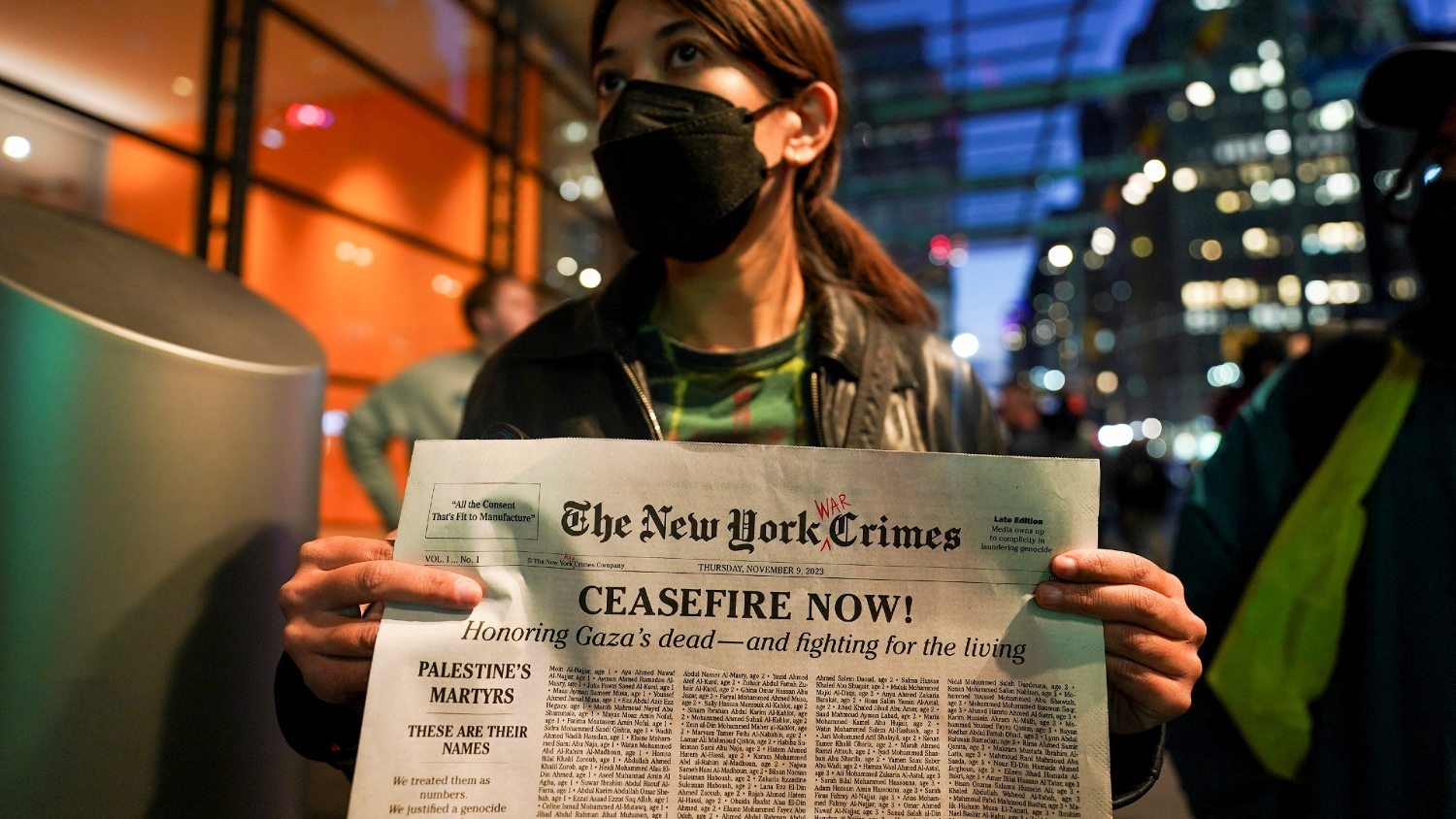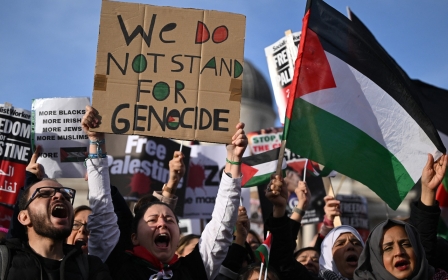Palestine-Israel war: US public support for Israel's war on Gaza reaches new low, polling shows

American public support for Israel's war in Gaza has reached a new low, with a fresh poll showing that less than a third of respondents support the war, and the majority of those polled think that Israel should call for a ceasefire to the conflict.
The findings of the Reuters/Ipsos poll released on Wednesday show that 32 percent of respondents said "the US should support Israel" when asked what role Washington should take in the war.
This is down from the 41 percent who shared this opinion in a Reuters/Ipsos poll conducted in October.
About 39 percent of those polled said "the US should be a neutral mediator" in the conflict, a percentage that is up from the 27 percent who agreed with that statement a month ago.
Meanwhile, 68 percent of respondents in the poll said they agreed with a statement that "Israel should call a ceasefire and try to negotiate."
The majority of respondents urging for a ceasefire is at odds with the position of US President Joe Biden, who has turned down calls from rights groups, progressive Jewish organisations, Palestinians, and 120 UN member states calling for Israel to agree to a ceasefire.
In response, a group of Palestinians filed a lawsuit against Biden, Secretary of State Antony Blinken, and Secretary of Defence Lloyd Austin, accusing them of failing to prevent an "unfolding genocide" in Gaza.
The new poll comes more than a month after Hamas and armed Palestinian groups launched an attack on Israel on 7 October, which killed around 1,200 Israelis, according to the official tally from the Israeli government.
Follow Middle East Eye's live coverage of the Israel-Palestine war
Israel's response, which has included a weekslong aerial bombardment campaign followed by a ground incursion into Gaza, has killed more than 11,000 Palestinians, 70 percent of whom are women and children.
Israel's military has targeted residential infrastructure, including hospitals and neighbourhoods, and it is currently conducting a raid on Gaza's largest hospital, al-Shifa, Thousands of Palestinians have been seeking shelter from Israeli bombs at the medical complex.
Weapons to Israel: 43 percent opposed to it
The Reuters poll also showed that only 31 percent of respondents support the US sending weapons to Israel, while 43 percent are completely opposed to it - the rest said they were unsure.
The US has been a steadfast supporter of Israel for decades, both diplomatically and militarily. Each year, the US provides around $4bn of military support to Israel.

Since war broke out between Israel and Hamas last month, the US sent an additional $14bn in military aid.
A report from Bloomberg on Tuesday stated that the Pentagon has quietly ramped up its delivery of military aid to Israel, including sending laser-guided missiles, artillery shells, and bunker-buster munitions. This comes after Josh Paul, the top Biden official who oversaw arms transfers to other countries, resigned over the Biden administration's approach to the war in Gaza.
While public support for Israel has appeared to wane, the polling shows that only four percent of respondents said the US should support Palestinians and 15 percent said the US should not be involved.
The poll was conducted online and nationwide between Monday and Tuesday, and gathered responses from 1,006 American adults, with a margin of error of four percentage points.
Middle East Eye propose une couverture et une analyse indépendantes et incomparables du Moyen-Orient, de l’Afrique du Nord et d’autres régions du monde. Pour en savoir plus sur la reprise de ce contenu et les frais qui s’appliquent, veuillez remplir ce formulaire [en anglais]. Pour en savoir plus sur MEE, cliquez ici [en anglais].




